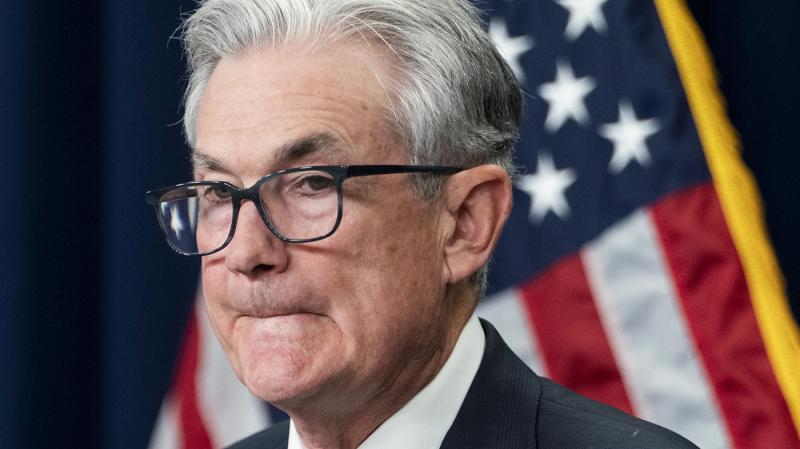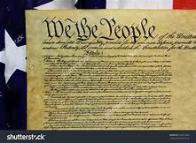Who owns the Fed's massive losses?
By: Paul H. Kupiec and Alex J. Pollock (The Hill)



We estimate that at the end of May, the Federal Reserve had an unrecognized mark-to-market loss of about $540 billion on its $8.8 trillion portfolio of Treasury bonds and mortgage securities. This loss, which will only get larger as interest rates increase, is more than 13 times the Federal Reserve System's consolidated capital of $41 billion.
Unlike regulated financial institutions, no matter how big the losses it may face, the Federal Reserve will not fail. It can continue to print money even if it is deeply insolvent. But, according to the Federal Reserve Act, Fed losses should impact its shareholders, who are the commercial bank members of the 12 district Federal Reserve banks.
Among Federal Reserve officials and many economists, it is fashionable to argue that any losses the Federal Reserve should suffer, no matter how large, will have no operational consequence. Now that the Fed has already experienced mark-to-market losses of epic proportions and will soon face large operating losses, something it has never seen in its 108-year history, we are about to see if this is true.
Member banks must purchase shares issued by their Federal Reserve district bank. Member banks only pay for half the par value of their required share purchases "while the remaining half of the subscription is subject to call by the Board."
In addition to potential calls to buy more Federal Reserve bank stock, under the Federal Reserve Act member banks are also required to contribute funds to cover any district reserve bank's annual operating losses in an amount not to exceed twice the par value of their district bank stock subscription. Note especially the use of the term "shall" and not "may" in the Federal Reserve Act:
"The shareholders of every Federal reserve bank shall be held individually responsible, equally and ratably, and not one for another, for all contracts, debts, and engagements of such bank to the extent of the amount subscriptions to such stock at the par value thereof in addition to the amount subscribed." (bold italics added).
Despite congressional revisions to the Federal Reserve Act over more than a century, the current Act still contains this exact passage.
By the Federal Open Market Committee's own estimates, short-term policy rates will approach 3.5 percent by year-end 2022. Many think policy rates will go higher, maybe much higher, before the Fed successfully contains surging inflation. Our estimates suggest that the Federal Reserve will begin reporting net operating losses once short-term interest rates reach 2.7 percent. This estimate assumes the Fed has no realized losses from selling securities. If short-term rates reach 4 percent, we estimate an annualized operating loss of $62 billion, or a loss of 150 percent of the Fed's total capital.
This unenviable financial situation — huge mark-to-market investment losses and looming negative operating income — is the predictable consequence of the balance sheet the Fed has created. The Fed is paying rising rates of interest on bank reserves and reverse repurchase transactions while its balance sheet is stuffed with low-yielding long-term fixed rate securities. In short, the Fed's income dynamics resemble those of a typical 1980s savings and loan.
In 2011, the Federal Reserve announced its official position regarding realized losses on its investment portfolio and system operating losses:
"In the unlikely scenario in which realized losses were sufficiently large enough to result in an overall net income loss for the Reserve Banks, the Federal Reserve would still meet its financial obligations to cover operating expenses. In that case, remittances to the Treasury would be suspended and a deferred asset would be recorded on the Federal Reserve's balance sheet."
Under this unique accounting policy, operating losses do not reduce the Federal Reserve's reported capital and surplus. A positive reserve bank surplus account is ensured by increasing an imaginary "deferred asset" account district reserve banks will book to offset an operating loss, no matter how large the loss. Among other things, this accounting "innovation" ensures that the Fed can keep paying dividends on its stock. Similar creative "regulatory accounting" has not been utilized since the 1980s when it was used to prop up failing savings institutions.
The Fed's stated intention is to monetize operating losses and back any newly created currency with an imaginary "deferred asset." It is impossible to imagine that the authors of the Federal Reserve Act would have approved of allowing the Fed to create an imaginary "deferred asset" as a mechanism to hide the fact that the Fed is depleting its cushion of loss-absorbing assets while paying banks dividends and interest on their reserve balances, when the act itself makes member banks as stockholders liable for Federal Reserve district bank operating losses.
Clearly, if the Fed is required to comply with the language in the Federal Reserve Act and assess member banks for its operating losses it could impact monetary policy. The prospect of passing Fed operating losses on to member banks could create pressure to avoid losses by limiting the interest rate paid to member banks or discouraging asset sales needed to shrink the Fed's bloated balance sheet. Moreover, if the Fed's losses were passed on, some member banks may face potential capital issues themselves.
Will the Fed ignore the law, monetize its losses, and create a new source of inflationary pressure? Or will it pass its losses on to its shareholders? Stay tuned.
Paul H. Kupiec is a senior fellow at the American Enterprise Institute. Alex J. Pollock is a senior fellow at the Mises Institute.




